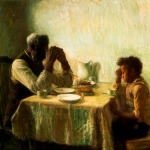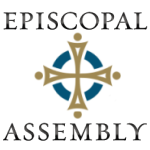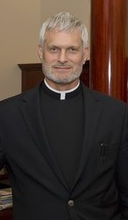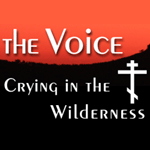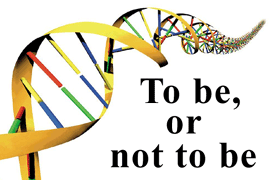
Patrick J. Buchanan
Source:
Patrick J. Buchanan: Right From the Beginning
“The opponents (of same-sex marriage) have no case other than ignorance and misconception and prejudice.”
So writes Richard Cohen in his celebratory column about Gov. Andrew Cuomo’s role in legalizing gay marriage in New York state.
Now, given that no nation in 20 centuries of Christendom legalized homosexual marriage, and, in this century, majorities in all 31 states where it has been on the ballot have rejected it, Cohen is pretty much saying that, since the time of Christ, Western history has been an endless Dark Age dominated by moral ignoramuses and bigots.
For the belief that homosexuality is unnatural and immoral and same-sex marriage an Orwellian absurdity has always been part of the moral code of Christianity. Gen. George Washington ordered active homosexuals drummed out of his army. Thomas Jefferson equated homosexuality with rape. Not until 2003 did the Supreme Court declare homosexual acts a protected right.
What is the moral basis of the argument that homosexuality is normal, natural and healthy? In recent years, it has been associated with high levels of AIDS and enteric diseases, and from obits in gay newspapers, early death. Where is the successful society where homosexual marriage was normal?
Not until the Stonewall riots at a gay bar in Greenwich Village in 1969 was the case broadly made by anyone but the Mattachines of Frank Kameny that homosexuality deserved to be treated as a natural and normal expression of love.
Still, Cohen is not without a point when he uses the term “prejudice.”
As Albert Einstein observed, “Common sense is the collection of prejudices acquired by age 18.” By 14, most boys have learned on the playground there is something disordered about boys sexually attracted to other boys.
Hence the need for politically correct universities to purge such ideas from young minds and indoctrinate them in the new truths of modernity.
But are we really wiser than our ancestors? As Edmund Burke wrote of the thinkers of his time:
“Many of our men of speculation, instead of exploding general prejudices, employ their sagacity to discover the latent wisdom which prevails in them. If they find what they seek and they seldom fail, they think it more wise to continue the prejudice, with the reason involved, than to cast away the coat of prejudice, and to leave nothing but the naked reason.”
Great minds once found merit in the “prejudices,” or inherited wisdom, of a people, as a spur to virtuous behavior. Again, Burke:
“Prejudice is of ready application in an emergency. It previously engages the mind in a steady course of wisdom and virtue, and does not leave the man hesitating in the moment of decision, skeptical and unresolved.”
In our new society from which traditionalists are seceding, many ruling ideas are rooted in an ideology that is at war with Burke’s “general prejudices.”
High among them is that homosexuality is natural and normal. That abortion is a woman’s right. That all voluntary sexual relations are morally equal. That women and men are equal, and if the former are not equally represented at the apex of academic, military and political life, this can only be the result of invidious discrimination that the law must correct. That all races, religions and ethnic groups are equal and all must have equal rewards.
Once a nation synonymous with freedom, the new America worships at the altar of equality.
Writing on the same Washington Post page as Cohen, a day earlier, Greg Sargent exulted in Cuomo’s law as “a huge victory … for equality … a major defeat for those self-described ‘conservatives’ who hate government except when it is enforcing a form of legalized discrimination that comports with their prejudices.”
Sargent also has a point. But behind the “prejudices” of conservatives about the moral superiority of traditional marriage are 2,000 years of history and law. What is the intellectual and moral basis of Sargent’s notion?
He claims “majorities of Americans are not prepared to assign sub-par status to the intimate relationships of gays and lesbians.”
Certainly, that is true of the Albany legislature.
But why then does Barack Obama seem so hesitant to embrace gay marriage?
In 2012, we shall find out who is right politically, when the issue goes on the ballot in battleground states. But is moral truth to be discovered at a ballot box? Do we have no superior moral compass than majority rule?
“A new kind of America is emerging in the early 21st century,” said Archbishop Charles Chaput of Denver last week, “and it’s likely to be much less friendly to religious faith than anything in the nation’s past.”
He added, pointedly, “If Catholic social services should be forced to alter their Catholic beliefs on marriage, the family, social justice, sexuality (and) abortion,” they should terminate those services.
Prediction: We are entering an era where communities will secede from one another and civil disobedience on moral grounds will become as common as it was in the days of segregation.

 You won’t find this type of candid footage on CNN, MSNBC, CBS, ABC or even Fox News, but it shows you what the liberal media would like to hide: New Yorkers do not want the sacred institution of marriage — ordained by God — redefined, tampered or destroyed.
You won’t find this type of candid footage on CNN, MSNBC, CBS, ABC or even Fox News, but it shows you what the liberal media would like to hide: New Yorkers do not want the sacred institution of marriage — ordained by God — redefined, tampered or destroyed. 
